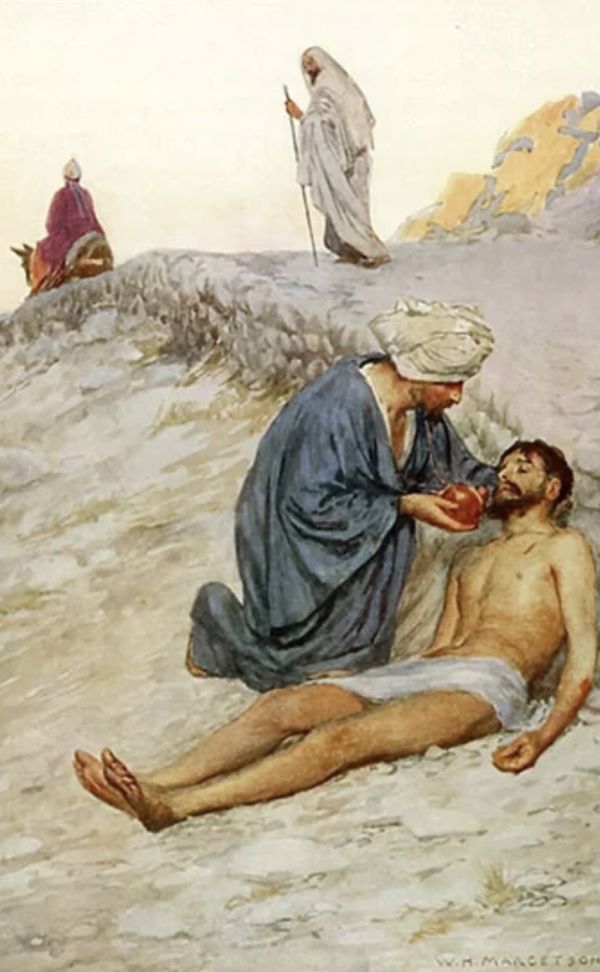Not from the precept, but from the overthrow
(Lk 10:25-37)
«You are a fool and a samaritan!» - so the Jewish leaders (Jn 8:48). «No, I am not crazy...»: this is how the Stranger defended himself from the accusation that the fanatics moved to him, of being a possessed, obsessed and mentally ill.
Yet he quietly accepted the infamous title of «Samaritan»... epithet that designated one out of the loop, a vilified by decent people.
An excluded person from the sacred enclosure; practically alien, irritating, avulsive, heretic and impure: a «bastard» and deranged who allowed himself to preach love in all decisions [heart], at every moment [life], with any of the resources [forces], not excluding intelligence, nor the others’ legitimate desire for the full being (v.27).
Well, the non-careless perception and the very sensitive work of a "mestizo" seem to be those of God!
They answer the crucial, intimate question: «Who loves me first, so that feeling welcomed, adequate and appreciated, I too can love my neighbour?» (v.29).
We know the Gospel passage. Those obsessed with ritual purity [the ministers who had just officiated] become ruthless.
And here is a new Decalogue, with an accumulation of "verbs" of the «take charge»:
«He came near, and saw him, moved to piety, went down, poured out his first aid, wrapped the wounds, loaded the wretched on the mount, brought him in the abode that receives everyone, took care, pulled out money».
Finally He exposed himself, with special regard also for a thoughtful and further look: «I will return to pay, where necessary».
The Ten authentic new Decrees deify us without deception, in harmony with the plan and the feeling of the Father in our favor: neither He nor his intimates ‘pass beyond’ the victims.
Promise and concern that ramify on our future: when there should be something else to be put in addition, the Friend Rescuer will give it in more and always.
From here Love starts: from Someone who considers us, without conditions.
Therefore, despite the risk of becoming entangled in the situation, even the common sons of God ‘notice’ the wounds, and does not “neglect” the shaky persons.
They identifiy with, preferring to challenge the events - redeeming the beaten, cornered as refusals that now await only the coup de grâce.
He’s a God of concrete experience; without patterns. And He tells us:
We are totally lovable in every condition, not "wrong" or marked for life.
From this awareness springs the desire and energy of altruistic love - even unknown and without reputation.
As the encyclical Brothers All emphasizes, so it will be possible to «start from below and, case by case, act at the most concrete and local levels, and then expand to the farthest reaches of our countries and our world, with the same care and concern that the Samaritan showed for each of the wounded man’s injuries» (n.78).
In the desert of Judah, on an engraved stone of a caravanserai that a tradition wanted to identify as the Everyone’s Home [image of the Church] to which Jesus referred in the parable - more or less halfway between Jerusalem and Jericho - an anonymous pilgrim wrote in medieval Latin:
«If even priests and the churchmen pass over your anguish, know that Christ is the good Samaritan, who will always have compassion on you, and in the hour of your death He will introduce you in the eternal Inn. Whoever you are, He will take you there».
[15th Sunday (year C), July 13, 2025]












